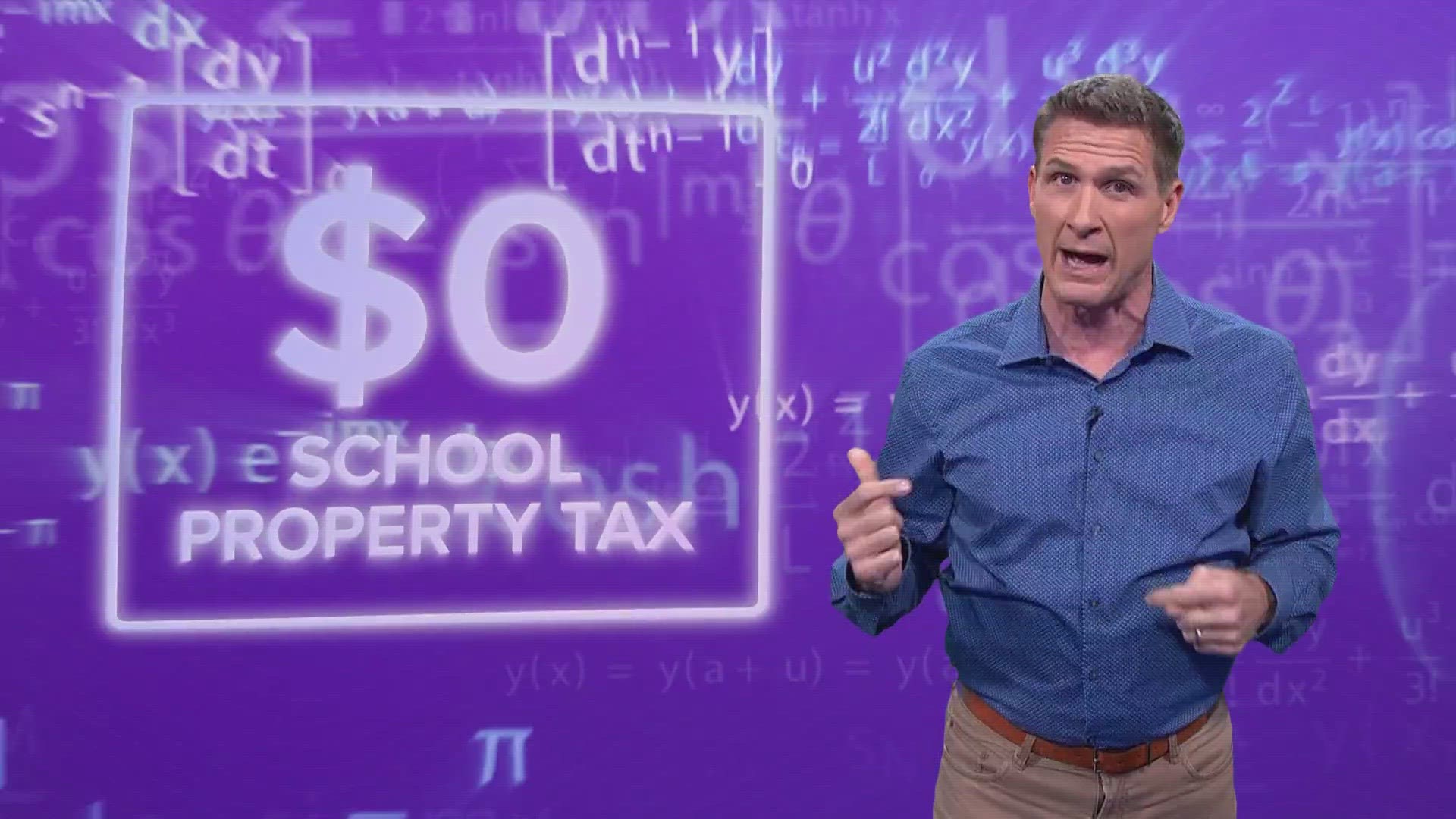I have had a nightmarish couple of weeks working the math on the new property tax relief in Texas, specifically when it comes to senior and disabled homeowners. I consulted smart people at the capitol and at an appraisal district.
After talking at length through the details, I kept running the numbers — and they never added up. The math nightmare was a recurring one.
How does relief affect "the ceiling"?
I took this on because I was hearing from seniors who were worried about their ceilings. Not the kind of ceiling you look up at when you are laying down... but the money saving kind of ceiling.
If you have a homestead, when you turn 65 or if you become disabled, you can get some bigger property tax exemptions. But more importantly, you hit "the ceiling". That is the amount you pay in school property taxes in the year that you turn 65 or become disabled.
In future years, as long as you don't significantly improve your home, your school tax won't go above the ceiling, even if a hot real estate market raises your home’s value tremendously.
I corresponded with one homeowner who turned 65 a decade ago. At the time, their house was valued at about $109,000. Their school tax ceiling was calculated at $1,245.
Since that ceiling was established, they have paid that amount for school taxes every year, even though the value of their home has increased to $267,000. If they didn’t have the ceiling, their school taxes would have risen tremendously over the years.
Will people with "the ceiling" see property tax relief?
Will their school taxes go even lower than $1,245 because of the new property tax relief that has been signed into law? The new formula allows them to exempt an additional $60,000 of their home’s value (on top of their current exemption). And the law reduces the school tax rate.
But if you simply plug in the current home value minus the more generous exemption and multiply it by the lower tax rate, the tax owed would be higher than the ceiling in many cases.
Well, enter the expertise of some key staffers from the office of Senator Paul Bettencourt, who is the author of the tax relief legislation. Those staffers tell me they went back and forth with the Lieutenant Governor’s Office about the math on this (which made me feel better about how my math kept missing the mark). They came up with an answer.
And math professors rejoice – because as I requested, they showed their work!
The formula
Homeowners who have a ceiling on school taxes don’t subtract the added new exemptions from their current value. The senator’s staffers told me you take the additional homestead exemption straight off the ceiling amount. Here’s the formula they sent:
New Tax Bill = Current Tax Ceiling - ($60K x 2023 School District Tax Rate) - ($15K x 2022 School District Tax Rate).
We don’t yet know the tax rate for 2023, so if we use the 2022 tax rate for the earlier example in which the person has a $1,245 ceiling, it would look like this:
New Tax Bill = $1,245 - ($60,000 x Their 2023 tax rate… which we don’t know so we are using their 2022 tax rate of .0133) - ($15,000 x 2-22 tax rate which was .0133). In numbers that would be $1,245 - ($798) - ($199.50) = $247.50.
That $247.50 would become their new tax ceiling, unless tax rate reductions passed by the legislature drop it even further, possibly even to $0. Senator Bettencourt’s office explains that because of changes in the law, “there's no risk of the tax cut "disappearing"--it's a one-way ratchet downward if the legislature passes more school tax rate compression in future sessions.
A $0 or near $0 school tab bill predicted for a number of homeowners
Bettencourt’s office estimates there are more than two million Texas homeowners with the over 65 or disabled exemption and that “a significant number of (them)... will see their ISD tax bill drop to $0 or very close to $0."
And they say, “The longer you have had this exemption the greater the chance of your ISD bill being eliminated.”
None of my math showed this. So, I still want to see some of those tax bills in a few months to make sure after all those weeks of nightmarish math, that this formula isn’t just a dream.
Bettencourt estimates that based on a $331,000 homestead and school tax rate $1.1357, the average senior/disabled homeowner would see a two-year savings of $2919.33 and that other homeowners who are not in those categories would see an average two-year savings of $2,578.61 on their tax bills.
Not a sure thing yet…
Lawmakers and the governor signed off on this. But it still requires a constitutional amendment that must be approved by Texas voters in November.
Local officials have been told to mail your tax bill this fall, using dollar amounts that assume voters say yes to that amendment. So, you'll likely see big tax savings. But If voters reject this in November you would get a follow up bill late in the year for the amount you would've saved if it had passed.
If voters approve the amendment, homeowners will end up paying much less to school districts. Some people have worried about stiffing the schools. Since Texas had a huge budget surplus this year, lawmakers committed that for the next two years the state will pay the school district the amount you are not paying.
But what about after that? What if there isn't a big budget surplus to pay for this tax relief in later years? We don’t have that answer yet.

